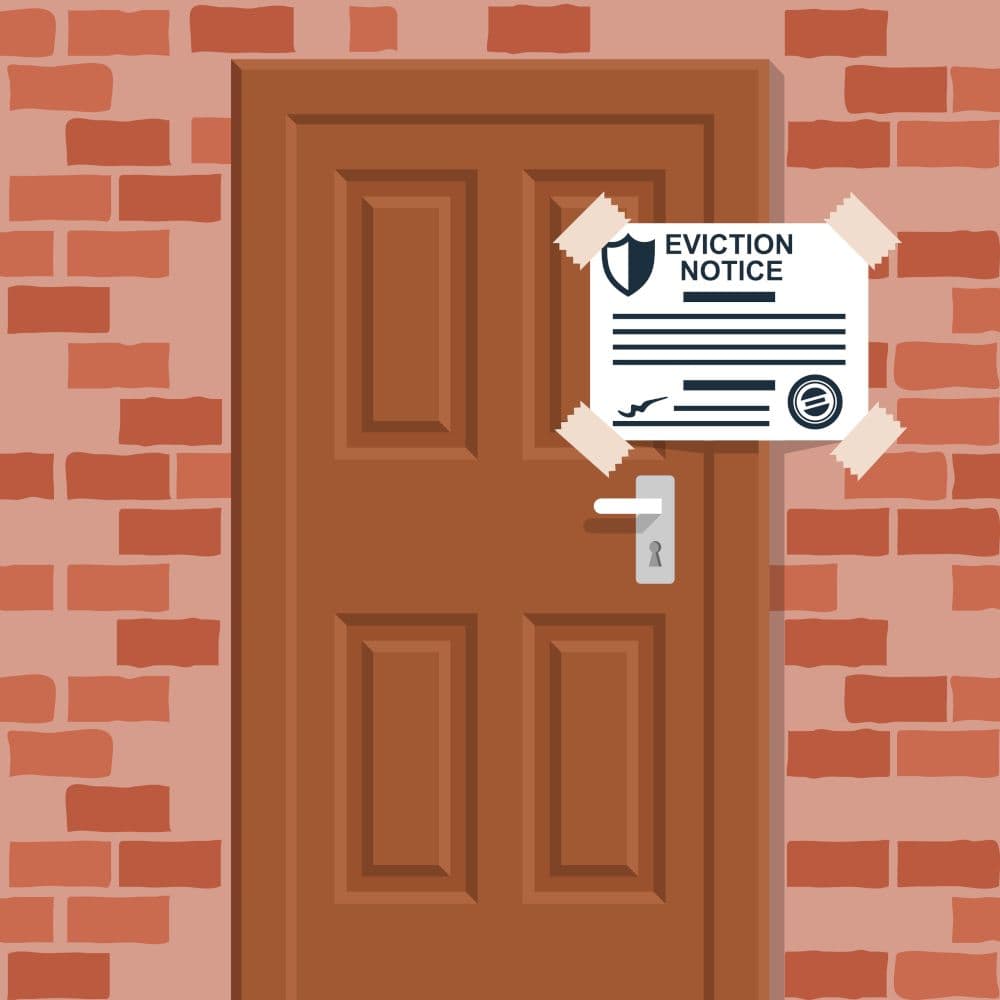
How to Evict a Dangerous Flatmate
If your flatmate is violent or temperamental, you need to be careful when kicking them out of your home. Kicking out a dangerous flatmate involves careful planning and awareness of your legal rights as far as your rental agreement goes.
Think about an objective look at what your flatmate is capable of. When we share space with another person, it can be difficult to accurately judge what he/she is likely to do because we are so overcome with the feelings about him/her that have accumulated over time. Take stock of previous violent incidences that have occurred between you and your flatmate. What did the worst fights you ever had look like? Was physical harm ever involved? Has your flatmate ever stolen from you before in retaliation? It can help to write down dangerous or violent incidences in detail. This way, you can accurately determine what of the following you may need to do:
- Get outside support, like police assistance and legal action, to oversee the eviction and move out. This will be useful if there is a real likelihood that your flatmate will respond violently.
- Take legal action to ensure that you have as little direct confrontation with your flatmate as possible. These options will be best if avoidance seems like the best way to avoid a dangerous situation.
- Attempt to talk to your flatmate with civility about the need for him/her to leave. If the danger is that your flatmate will act out of anger from not being spoken to directly, or he/she has not demonstrated much actual violence against you, try simply handling the situation on your own.
Record all threats and instances of violence
Regardless of how much legal action you decide to take with your flatmate, good documentation of all instances of verbal and physical abuse will make any case stronger. Especially if you need a restraining order against your flatmate, you will want to have clear evidence of the type of threat the he/she poses.
Find out whether or not you have a legal right to evict
If your flatmate is subletting a room or part of the flat from you or if you are a designated master tenant on your lease, you have the legal right to evict your flatmate. However, as a sublessor or master tenant, you must comply with the state laws throughout the eviction. This could require giving notice and holding a court hearing.

Discuss your lease co-tenancy liability
If the lease is in both your name and your flatmate's name (as co-tenants), you cannot evict your flatmate. You will have to resort to other methods, like contacting your landlord to enlist their help in evicting your flatmate, as you have no legal right to do so.
- If you're the primary lessee, and rent is your sole legal responsibility each month, your flatmate has no legal right to live with you. This is unusual, but is sometimes the case between close friends or in last-minute living arrangements. If your flatmate is not on the lease at all, kick him/her out according to your judgment of the danger you're in.
- In most cases, renters have a joint lease where all tenants are responsible for paying the rent. The key term you're looking for is joint and/or several liability. If you're jointly liable, that means you're responsible for paying the full rent regardless of whether or not your flatmate pays. If you're severally liable, you're only responsible for your portion of your rent. If you're jointly and severally liable, this is better than being jointly liable because while you're still responsible for any unpaid rent, you do have legal cause to sue your flatmate for unpaid amounts.
Consult local tenant laws
Tenant laws vary with each state, and your local courts will have information on the specific steps that must be taken to evict your flatmate. Be prepared with information from your lease to see exactly how these laws apply to your situation with your flatmate. Do an Internet search for the name of your state plus "tenant handbook" to find this information The handbook should have a section on your rights when renting with flatmates that has detailed provisions for all kinds of offenses between flatmates.

Let your landlord know about the situation
Tell your landlord that your flatmate is dangerous and it is crucial that they be kicked out as soon as possible. If he/she is on the lease, it is up to your landlord to move the eviction forward. If your flatmate has no formal responsibilities for the property, you can handle the situation without talking to your landlord about it.
- Your landlord may need to file a criminal complaint for trespassing, although it may be easier for the landlord to just evict everyone in the rental unit, including you. Your landlord may or may not be willing to correct the eviction so that you can then move back in without the eviction showing on your record.
- It can help to have a new tenant all lined up to move in so that your landlord knows that you will still be able to pay rent.
- If your landlord is unsympathetic, it may be best to simply break the lease and move out yourself. There are usually significant fees for breaking a lease, but if your flatmate is dangerous and you want to avoid getting authorities involved, it could be a good option.

Inform campus housing about your flatmate in a college dorm
All colleges have different procedures, but all on-campus dormitories provide ways to get out of dangerous situations. Usually students can ask the resident adviser (RA) for the right steps to make the change. Check your college's residency handbook or online information about swapping flatmates and reporting dangerous activity on campus (if necessary).
